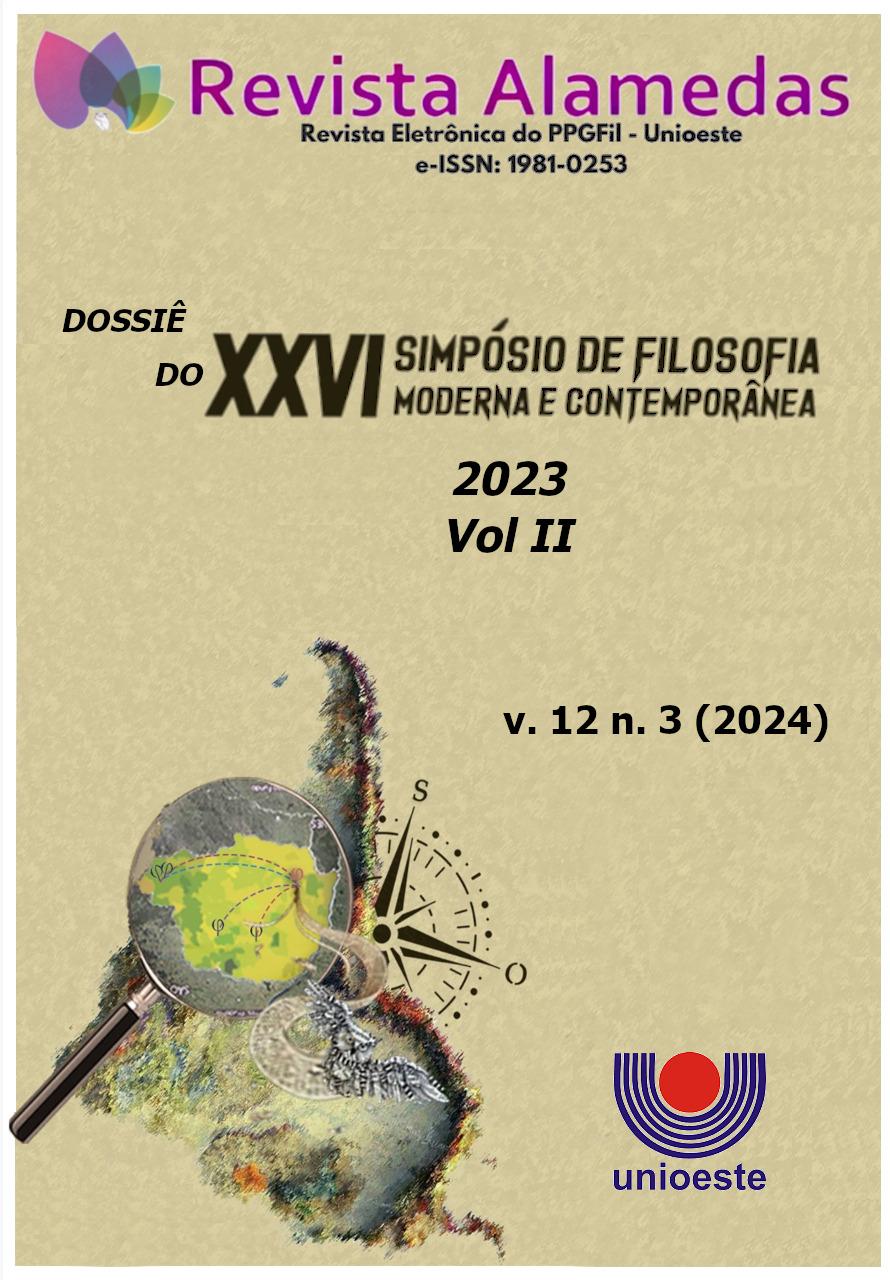Controvérsia e conhecimento em Leibniz
DOI:
https://doi.org/10.48075/ra.v12i3.33212Keywords:
Leibniz, Conhecimento, Controvérsia, IdentidadeAbstract
The reunion released in Portuguese of several works by Leibniz, with the well-defined name of “The Art of Controversies” (with the organization and layout published by the work of Marcelo Dascal) allows us access to important opinions, insights, ethical positions, political and theological, as well as complete notions contained in his work about philosophy and its repercussions. There is, with great clarity and propriety, a theoretical-methodological proposal that consists of systematizing human knowledge and sciences, affirming and directing their uses and functions in all possible areas of practical life. This text aims to demonstrate the importance of the aspect of controversy and philosophical disputes in the construction of Leibniz's theoretical framework. We are following the Leibnizian philosophy concerned with the forms of negotiation between different points of view and conciliation between the existence of different ways in which thought manifests itself, consolidating an ars disputandi, through the development of both ars inveniendi and ars judicandi. In this way, we intend to demonstrate how Leibniz seeks to reconcile disparate and competing philosophical proposals about the world and also, how reason becomes the great engine of this movement of bringing to light the most diverse points of view on a certain fundamental theme for human development.
KEYWORDS: Leibniz. Knowledge. Controversy. Identity
Downloads
Published
How to Cite
Issue
Section
License
Copyright (c) 2024 Alamedas

This work is licensed under a Creative Commons Attribution-NonCommercial-ShareAlike 4.0 International License.
Aviso de Direito Autoral Creative Commons
Política para Periódicos de Acesso Livre
Autores que publicam nesta revista concordam com os seguintes termos:
1. Autores mantém os direitos autorais e concedem à revista o direito de primeira publicação, com o trabalho simultaneamente licenciado sob a Licença Creative Commons Attribution que permite o compartilhamento do trabalho com reconhecimento da autoria e publicação inicial nesta revista.2. Autores têm autorização para assumir contratos adicionais separadamente, para distribuição não-exclusiva da versão do trabalho publicada nesta revista (ex.: publicar em repositório institucional ou como capítulo de livro), com reconhecimento de autoria e publicação inicial nesta revista.
3. Autores têm permissão e são estimulados a publicar e distribuir seu trabalho online (ex.: em repositórios institucionais ou na sua página pessoal) a qualquer ponto antes ou durante o processo editorial, já que isso pode gerar alterações produtivas, bem como aumentar o impacto e a citação do trabalho publicado (Veja O Efeito do Acesso Livre).
Licença Creative Commons
Esta obra está licenciada com uma Licença Creative Commons Atribuição-NãoComercial-CompartilhaIgual 4.0 Internacional, o que permite compartilhar, copiar, distribuir, exibir, reproduzir, a totalidade ou partes desde que não tenha objetivo comercial e sejam citados os autores e a fonte.


